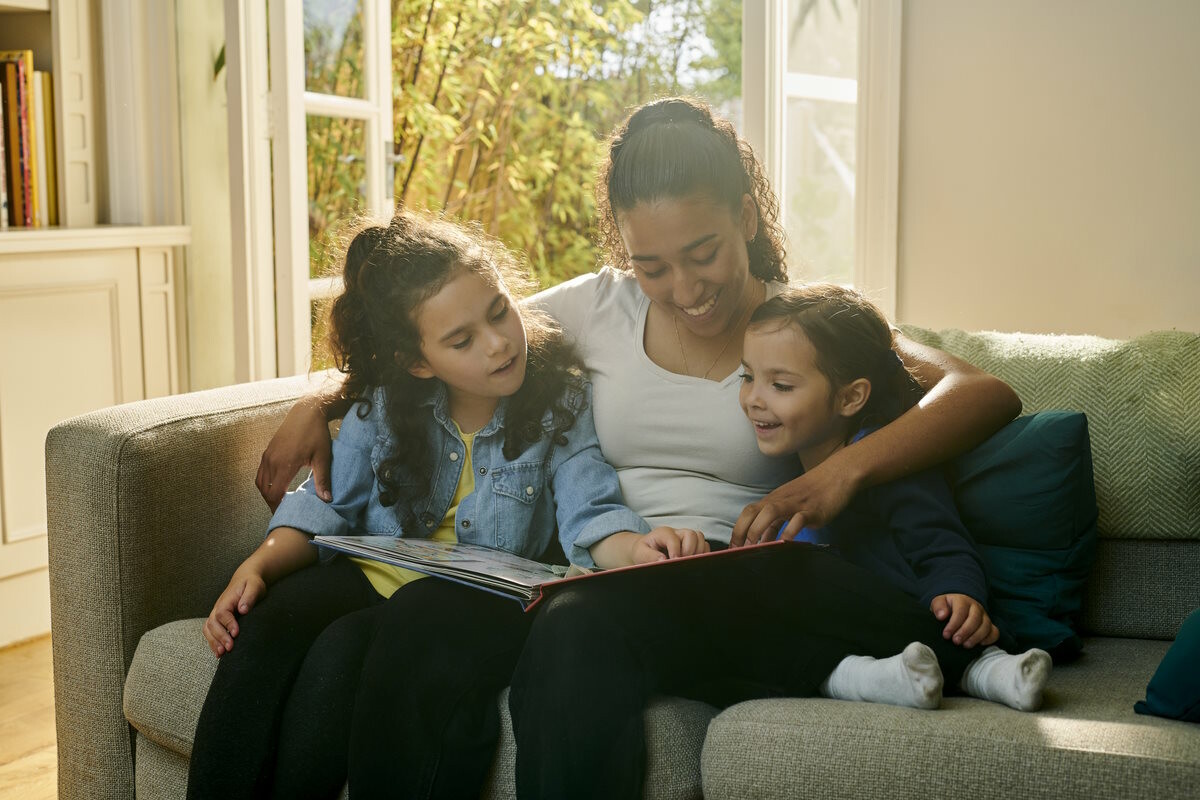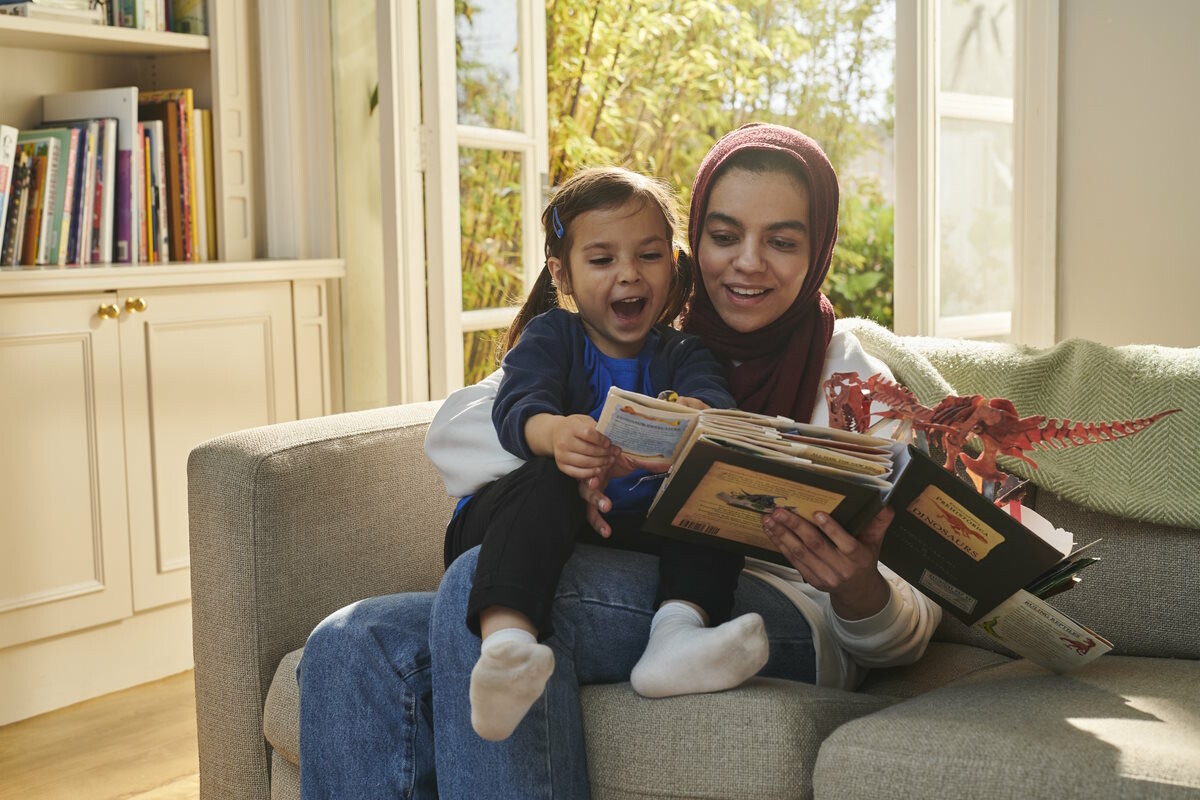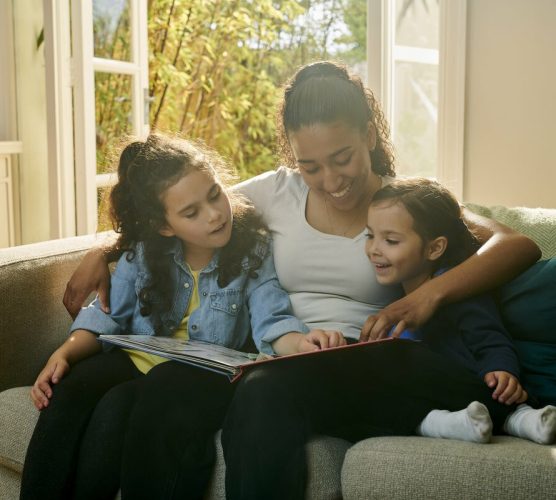
Reading is a critical skill that will support children with succeeding in school and in life. Research shows that reading to children from a young age can have a significant impact on their reading development and overall academic success. In this article, we’ll explore reading development in early childhood, the benefits of reading to children, the stages of reading comprehension in a child, and ways to help children who struggle with reading.
What is Reading Development in Early Childhood?
Reading development in early childhood refers to the skills and abilities that children develop as they learn to read – these skills include phonemic awareness, phonics, vocabulary, fluency, and comprehension.
- Phonemic awareness – the ability to recognize and manipulate the sounds in spoken language.
- Phonics – the understanding that letters represent the sounds in spoken language.
- Vocabulary – the knowledge of words and their meanings.
- Fluency – the ability to read smoothly and at a good speed.
- Comprehension – the ability to understand and interpret what is being read.
Benefits of Reading to Children
There are a lot of benefits of reading to children from a young age – as early as in the womb. Research has shown that reading to children can improve their communication and vocabulary skills, as well as their listening skills. It can also help them to develop a love of reading and a desire to learn, memory skills, concentration, and problem-solving skills – as well as enhancing emotional intelligence and social skills by exposing them to different perspectives and experiences.
The Importance of Reading to Children
Reading to children is an important way to support many areas of their development, including their reading skills. Children who are read to often are exposed to a wider range of language and vocabulary than children who are not read to as much.Reading to children doesn’t mean just going through the language in a book, but discussing the images, asking questions and exploring the story! Some children struggle to focus when it comes to reading, so making sure the experience is fun and engaging is really important and just as impactful on their development.
Choosing the right books
It’s important to choose books that are age-appropriate and engaging for children, for example sensory and imagery books would be more suitable for a younger child rather than a chapter book! Tips for choosing books for young children could include looking for books with simple language, colourful illustrations and images, and interactive elements like flaps or buttons.It’s also important to consider the child’s interests and choose books that will hold their attention and keep them engaged.
Creating a reading-friendly environment
Setting up a dedicated reading space or building a ‘home library’ of books, can encourage children (and adults) to read and foster a love of books. A reading-friendly environment should be comfortable and inviting, with a good reading light and a good selection of books.It’s a good idea to make sure the space is free from distractions and has a cosy place to sit – some comfy cushions in the corner of a room would do a great job.
Encouraging reading at home
Parents and caregivers can encourage reading at home by encouraging dedicated reading time, modelling a love of reading themselves, and encouraging children to read a variety of materials, including books and magazines.Making reading a fun and enjoyable activity and not a chore will help children to appreciate the joy reading can bring! Having part of a daily routine dedicated to reading is a great way to encourage reading at home for young children, and can be as simple as a few pages of a bedtime story every day.
Stages of Reading Comprehension in a Child
Reading comprehension is the ability to understand and interpret what is being read, children go through several stages of reading comprehension as they develop.
- The first stage is called the pre-reading stage, which happens before a child can read. Children are developing phonemic awareness and vocabulary through listening to and interacting with books.
- The next stage is the emergent reading stage, which occurs when a child is learning to read. Children are learning to decode words, connect them to their meanings and are beginning to understand simple storylines and characters.
- The third stage is the early reading stage, which occurs when a child becomes a more fluent reader. They are able to read more complex language and understand the main ideas and details of the story.
- The fourth and final stage is the proficient reading stage, which occurs when a child becomes a skilled reader. At this stage, children are able to understand and analyse language, make connections to their own lives and the world around them.

There isn’t a guide on what age children should meet each stage, as all children learn and develop differently. If you feel like a child is struggling at a certain stage of reading comprehension, speak to their parent or caregiver to see how they could best be supported.
Helping Children with Reading Difficulties
Some children may struggle with reading, and it’s important for parents and caregivers to identify and address any reading difficulties. Ways to support children with reading difficulties could include providing extra support in educational settings, using assistive technology, and seeking out additional resources or support if needed.Sometimes children just need a little extra help, but it’s important to discuss difficulties if they come up so children can be fully supported.
Factors that Affect Reading Difficulties in Children
There are several factors that can contribute to reading difficulties in children. These can include:Developmental delays: Children with developmental delays may struggle with reading as they are not yet at that developmental stage.Visual or hearing difficulties: Children with visual or hearing problems may have difficulty processing written language, which can make reading more challenging.Lack of exposure to books and reading materials: Children who are not exposed to books and reading materials may struggle as they have not had the opportunity to develop their reading skills.Speech and language difficulties: Children who have speech and language difficulties may struggle with decoding and pronouncing words.Additional needs: Children with additional needs may have difficulty processing written language or engaging with reading materials.Children who struggle with reading for any reason can still enjoy books and reading experiences. If a child is unable to visually engage with the book you are reading together, you can choose a sensory book and speak about the smell of the pages, the texture of the graphics and discuss the topics in the book. Reading is an inclusive experience which allows anybody to enjoy it!
 Reading is a critical skill that will support children with succeeding in school and in life. Research shows that reading to children from a young age can have a significant impact on their reading development and overall academic success. In this article, we’ll explore reading development in early childhood, the benefits of reading to children, the stages of reading comprehension in a child, and ways to help children who struggle with reading.
Reading is a critical skill that will support children with succeeding in school and in life. Research shows that reading to children from a young age can have a significant impact on their reading development and overall academic success. In this article, we’ll explore reading development in early childhood, the benefits of reading to children, the stages of reading comprehension in a child, and ways to help children who struggle with reading. There isn’t a guide on what age children should meet each stage, as all children learn and develop differently. If you feel like a child is struggling at a certain stage of reading comprehension, speak to their parent or caregiver to see how they could best be supported.
There isn’t a guide on what age children should meet each stage, as all children learn and develop differently. If you feel like a child is struggling at a certain stage of reading comprehension, speak to their parent or caregiver to see how they could best be supported.


